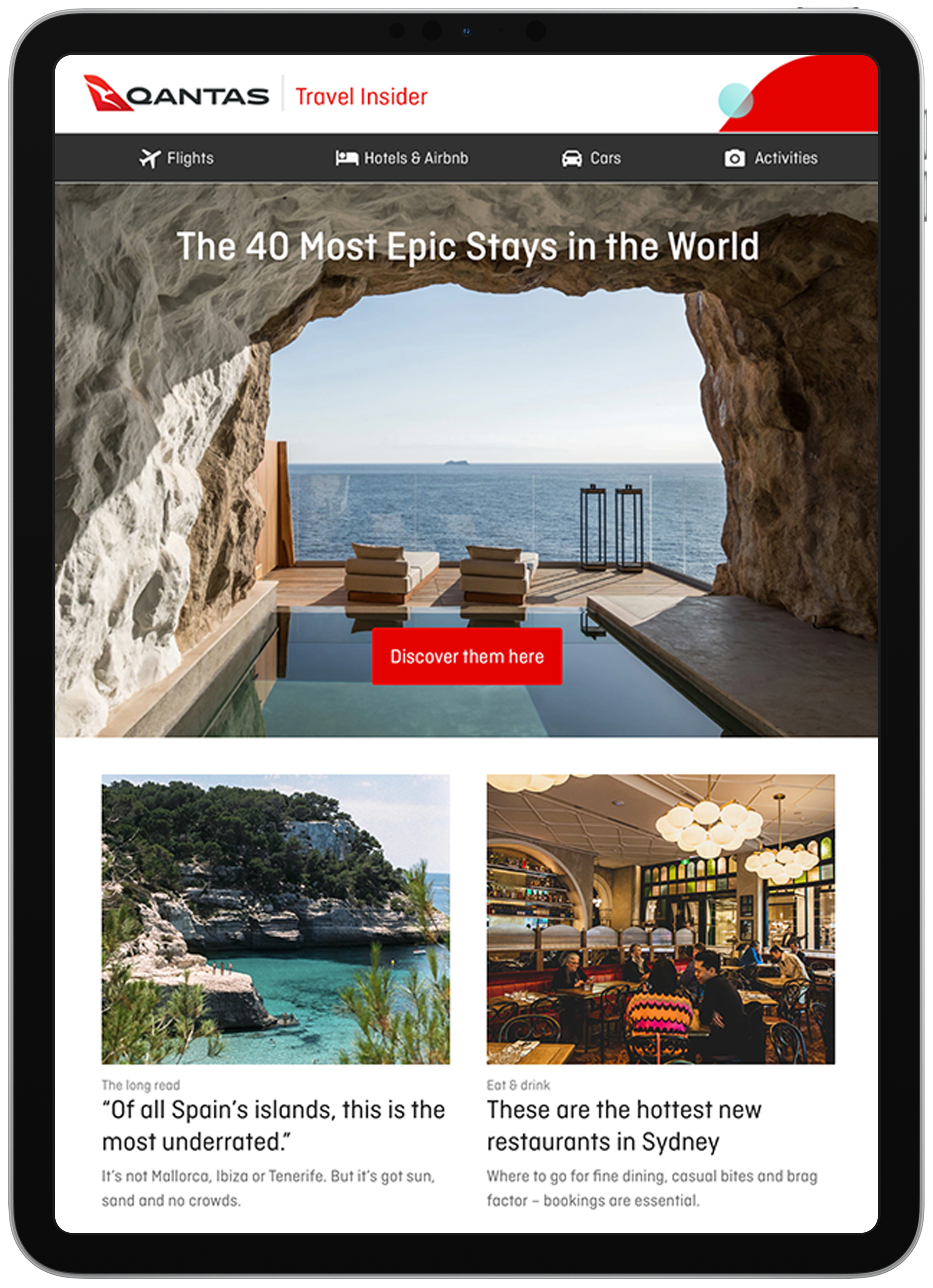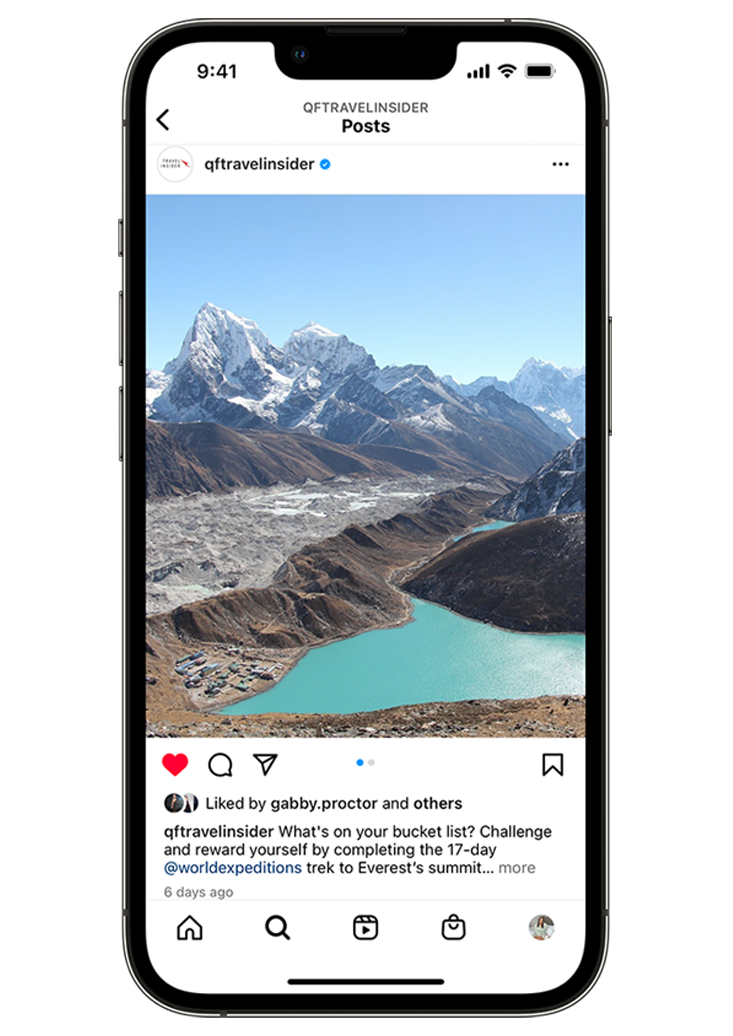How A New Wave of Wellness Retreats is Helping Stressed-out Executives Beat Burnout

Stressed-out executives are discovering new takes on wellness to help them manage the cognitive load.
A middle-aged senior executive is wobbling wildly as he walks the plank extending from a lift 60 storeys up in a high-rise building. A helicopter roars past just a tad too close and he gingerly avoids a misstep that would have sent him plunging into the urban abyss below.
“Deep breaths,” a seemingly disembodied voice reminds him and a heart rate monitor clipped to his index finger indicates the rush of anxiety he felt at the outset is now under control. He turns precariously at the end of the plank and shuffles his way back to the lift.
Stressful situations don’t get much more extreme than the one conjured in this virtual-reality exercise at Gwinganna Lifestyle Retreat, one of Australia’s best-known wellness destinations, where a new four-night program offers practical approaches to managing stress and inspiring optimal performance.

The property, on 160 hectares of sublime rainforest in the Gold Coast hinterland’s Tallebudgera Valley, is almost at capacity. In the mix are entrepreneurs, accountants, business owners, engineers, a fashion designer, an agronomist, an infrastructure project manager and a neuropsychologist – all rubbing shoulders with yoga teachers, retirees and more. Some are on career breaks. Others are seeking personal transformation after confronting life events or wanting respite from a 24/7 tech-powered world (there’s limited phone or wi-fi). All want to move the dial on healthy living or greater longevity.

The Sustainable Peak Performance package has attracted a larger than usual number of men. Gender split for wellness retreats typically runs about 80 per cent female, 20 per cent male but it’s 60:40 on this occasion. For many participants, program leader Nam Baldwin – coach to Olympians, AFL premiership-winning teams and international executives – is the lure. He has already captured imaginations with a talk on easy wins for wellness and stress reduction. “The most underestimated aspect of high performance is lifestyle,” he says.
Baldwin’s strategy starts with a pleasingly simple list of habits to practise first thing every morning (to garner energy) and at the end of the day (to wind down for eight hours of brainreplenishing sleep). Doing just a few things daily builds capacity, insists Baldwin, who shuns hyper-achievement goals in favour of small improvements that build “like compound interest”, stimulating substantial performance gains over time.
Less than 10 minutes every morning is enough to set yourself up for an optimal day, he claims. In short, that’s five slow, deep breaths in and out; drinking water (450 to 600 millilitres) soon after waking; exposure to daylight to stimulate hormones (serotonin for happiness and melatonin for circadian rhythms); four minutes of exercise (increasing intensity every 60 seconds); one to three minutes of gratitude for someone, something and yourself to boost optimism; and anticipating the good and challenging moments in your day to “get the neurons in your brain firing and wiring”.

A restful night relies on moderating caffeine intake (none after 2pm), avoiding strong exercise (light stretching is a maybe), eating a meal two to three hours ahead of turning in, plus sticking to a regular bedtime in a darkened room reserved for romance and sleep only – optimal temperature 19.5 degrees. Screens and alcohol consumption close to lights out are also not recommended.
In Baldwin’s program, engaging seminars work in tandem with practical sessions that see guests put their knowledge into action. The power of breathwork is all-pervasive, along with the importance of attitude. When faced with any challenge, you need to be clear on the mindset required, he tells the group. “It opens your potential. The story in your head is the one you listen to the most… your mindset is your superpower.” Surfer Mick Fanning’s was “no regrets”, adds Baldwin.

While his suggestion of a “playful” and “curious” mindset don’t necessarily automatically kick in when we’re asked to perform a death-defying feat 60 stories up, by the end of that session on day three, everyone feels like a winner and is swapping success stories and experiences. The group bonds over the challenge and exudes a mutual sense of achievement. Overarchingly, though, the victory belongs to Baldwin, who has united and inspired a disparate group of 68 people who have travelled from all over Australia for a wellbeing uplift.
Opened almost 20 years ago by Fitness First gyms founder Tony de Leede, Gwinganna draws regulars and newcomers alike to soak up the tranquillity of the mountainside and its protected wildlife. Here, they pick and choose their way through an extensive menu of spa options and dine on exceptional gluten- and dairy-free organic cuisine – vegan, if you prefer. On this retreat, coffee is offered in the mornings and a glass of wine on the final evening. The all-inclusive package covers meals, accommodation (ranging from heritage houses to cottages, adjoining suites and villas situated across the property), a range of optional activities and some spa treatments.
Most welcome the day by practising qigong, facing into the sunrise and a mesmerising view that stretches to the ocean, before joining early-morning bushwalks (from simple to challenging), yoga, Pilates, sound baths and evening meditation sessions. The emphasis is less about athletic prowess and more about “the ability to get the best out of life”, as Baldwin puts it.
Like the executives who went before him, Colin Tate, 57, managing director of a Sydney-based international media company, admits to being “weirded out” initially when he took on the plank-walking exercise but says he learnt much from it. The breathing and mindset tools worked to manage his anxiety in the moment. Useful stuff. “How often do we have that fight-or-flight reaction in a boardroom?” he muses. Post-retreat, Tate is walking to work, eschewing alcohol and adopting the morning and evening routines. He’s already booked for Baldwin’s next Gwinganna program in November with his partner and is planning to take his direct reports in future. “I feel transformed,” he says.
The rural reset

At Twin Figs Farm, a 26-hectare, 150-year-old family farm near Jamberoo on the NSW South Coast, there’s plenty of traditional wholesome goodness (and homegrown food) served alongside advice and strategies to help its guests re-evaluate goals and identify priorities.
The two-day You Choose workshops are designed by executive coach Suzanne Storrie, chair of the trailblazing cancer treatment centre Chris O’Brien Lifehouse, former COO of the National Rugby League (NRL) and pandemic-time crisis director at insurer IAG. As the name suggests, her programs are tailored to cater to the flexibility required by her clients. “Some people don’t like yoga and others don’t like running,” says Storrie, who moved to the property, about two hours from Sydney, with her husband, Colin, in late 2020 and introduced sustainable farming practices.
Participants’ days are structured to include straight wellness activities like Wim Hof breathing exercises, ice baths and massage, as well as mindfulness and the writing of a personal stress-management plan.
Storrie says interest comes mainly from executives, including those who’ve made the regional shift and are switching from corporate roles to consulting. Numbers range up to 16 people, who stay at the farm or one of several nearby options.
“One task is making a 15-year plan where career is just one aspect of your life, along with health, relationships, your home, personal pursuits and community. Everyone says, ‘I don’t have enough time’,” says Storrie. But it’s a practice that’s helped her to reflect on her days of working up to 80 hours a week at the NRL. “Prioritising is crucial. It means you work on what’s aligned with your values, rather than just working on stuff.”
The lifestyle long game
After Jan Owen’s husband, David James, had a heart attack in his mid-50s, the couple embarked on a life-transforming fitness mission, “going to yoga here, Pilates there, for infrared saunas in another location and to the gym”.
“We thought, ‘Why can’t you do all this in one place?’” recalls Owen, a social entrepreneur and consultant on the future of work and education.
With a mission to change the way people age, the couple established an urban retreat called Be Well in a 600-square-metre space in Melbourne’s Hawthorn. The studio brings together gym workouts, yoga, tai chi, meditation, compression therapy and oxygen booths, along with 3D body scans and assessments, allied health services (from physios to psychologists) and monthly talks by wellness specialists.
“There’s no age that you can’t reset,” says Owen, whose 180 current members are aged from 24 to 84. “We’re living longer but the last 15 years of our health span tends to be poor.”
In August, Be Well will launch a Health and Longevity arm with a focus on “prehab” ahead of rehab, says Owens, and the aim of warding off medical incidents and hastening recovery from injury or surgery.
Her sights are on the rising trends of lifestyle medicine and “deprescribing” – coming off medications if living habits can achieve the same outcomes – as an antidote to the burgeoning costs of healthcare for an ageing population that’s retiring later. “In Australia, we spend just 1.3 per cent of the entire health budget on prevention,” she says.
The mental fitness focus

One of the most important but often overlooked aspects of leadership is managing mental wellness, according to Brisbane-based SME expert Shivani Gupta. “The trouble is that leaders tend to put the health of their business and others ahead of their own,” she says.
Gupta’s career includes a long stint as an electrical engineer at BHP and, more recently, launching, scaling and exiting a series of businesses where the importance of mental wellness for workers loomed extra-large.
She draws on her experience of startups and their challenges, including running co-working spaces, a day spa across multiple locations and a kids’ play space, as well as managing the financial squeeze when COVID hit – at that time, Gupta had a mid-sized business with 60 employees.
Today, through Ask Shivani, a consultancy focused on presentations, keynote speeches and one-on-one coaching sessions, she’s talking profits, people and mental wellness, and taking business leaders out of their comfort zones on adventure retreats to local destinations as well as India and Nepal.
Starting points for managing a healthier headspace, says Gupta, are simple steps such as processing emotions by journalling – yes, write it down – before reacting to challenging situations. For newcomers to the practice, she likes one-minute meditations. “Over time, you can stretch that out.”
She protects her own mental wellbeing by sticking assiduously to a daily ritual of 10 minutes’ reading, 10 minutes’ journalling and 12 minutes of meditation. “That 32 minutes sets me up for the day wherever I am – even on a plane.”



